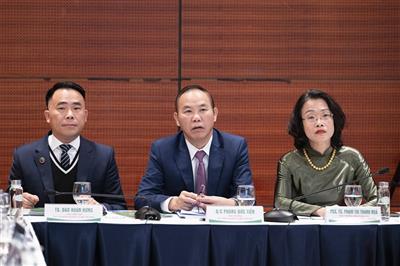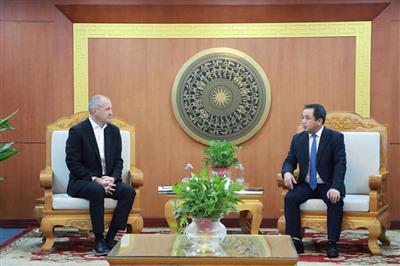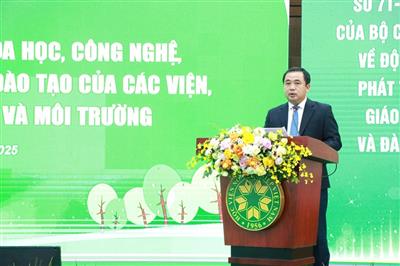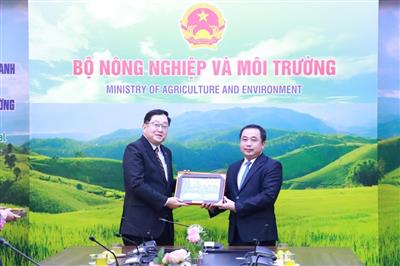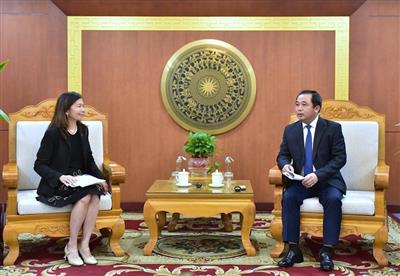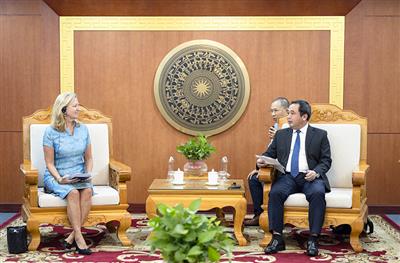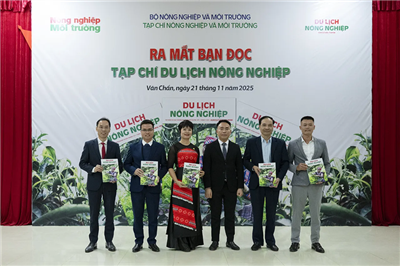
Protecting water resources is protecting the planet and human life
01/10/2023TN&MTOn March 22 (New York time), the United Nations 2023 Water Conference commenced at the UN headquarters, emphasizing the international community's commitment to one of the world's major contemporary issues. At the conference, Deputy Prime Minister Tran Hong Ha delivered a speech during the plenary session.
In his speech, Deputy Prime Minister Trần Hồng Hà stressed that water is the source of life, and without water, a green planet and human existence are impossible. History and science have demonstrated that the prosperity of numerous empires and the vibrant civilizations of humanity are all intimately connected to water. Presently, nearly one-third of the world's population resides in countries affected by water scarcity or conflict. The World Meteorological Organization predicts that by 2050, more than 5 billion people will face difficulties accessing water. The World Health Organization warns that 40% of the world's population will be affected by water scarcity, leading to health issues related to water pollution, resulting in a 7-10% reduction in global GDP. Therefore, protecting water resources is tantamount to safeguarding the planet and human life, along with the economic, social, cultural, and historical achievements cultivated by generations over thousands of years. At this conference, Vietnam would like to share several perspectives:

Deputy Prime Minister Tran Hong Ha's Speech at the Conference
Firstly, we need to recognize that water resources are facing unprecedented pressures due to the increasingly extreme nature of climate change, natural disasters, pollution, and the risks of depletion due to unsustainable exploitation and use. Therefore, humanity must act promptly before it's too late.
Secondly, a programmatic approach to water should hold a pivotal position in sustainable development, similar to climate change, economic and social development, and environmental protection. Restoring water resources must be undertaken comprehensively and in the context of global efforts to restore natural ecosystems, preserve biodiversity, and adapt to climate change.
Thirdly, there is a need for a global legal framework based on science to guide and coordinate sustainable exploitation, use, and restoration of water resources. Urgent measures must be taken to establish global scientific and technological centers and regional water hubs, develop a network for water monitoring, and create databases on water resources. There should be planning for the exploitation and use of water resources while improving water quality for transboundary rivers.
Fourthly, international organizations and bodies under the United Nations, such as transboundary river commissions and international river councils, should be established. A transboundary river basin financing mechanism should be initiated, or the functions of river basin financing should be expanded, to support global environmental funds.
Finally, it is crucial to establish a social and ethical standard in dealing with water resources, especially transboundary water resources, based on principles of fairness, equity, rationality, and respect for the rights and interests of countries in the basin.
Vietnam has been and continues to implement various strategies and solutions to enhance effective management and protection of water resources, ensuring the realization of sustainable development goals under the 2030 Agenda, while continuously improving the institutional framework and policies to ensure people's access to clean and safe water. Specifically, Vietnam commits that by 2025, 100% of large river basins will be regulated and allocated to solve water scarcity through water resource planning. By 2030, 100% of urban households will have access to clean water according to standards.
Vietnam pledges to continue cooperating with other countries in exchanging knowledge and experiences in water resource management, exploitation, and use, participating in water action programs and initiatives, enhancing cooperation, and sharing cross-border data and information, especially with countries sharing the same water sources, contributing to global efforts for a sustainable world."


